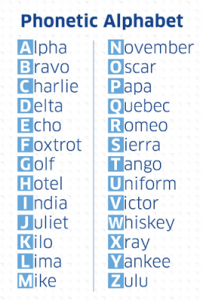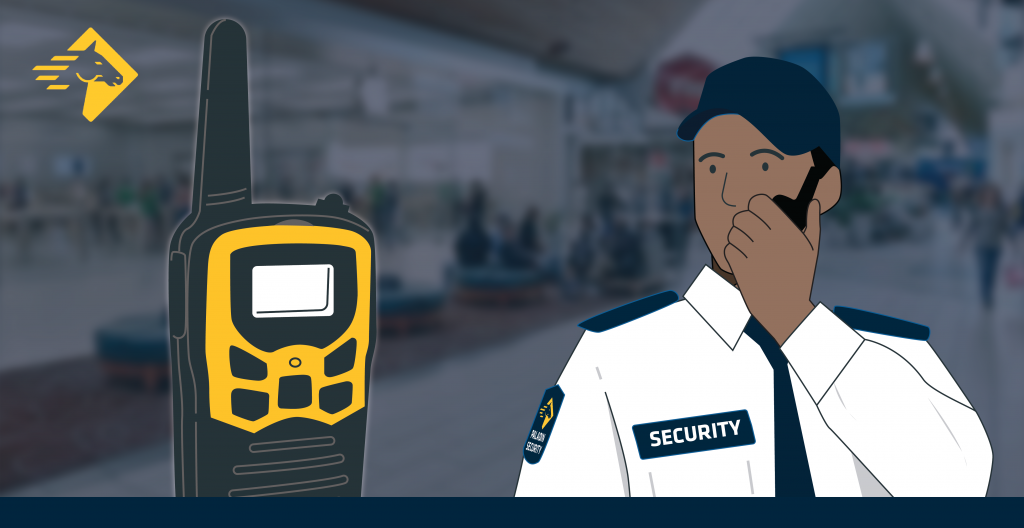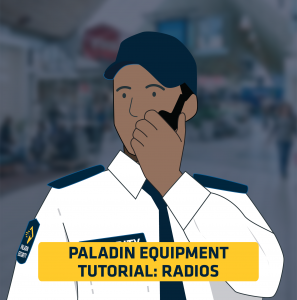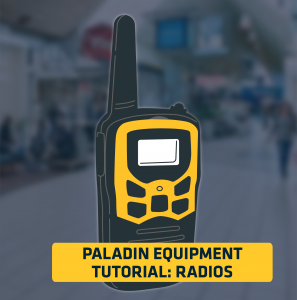“Security is not a product, but a process."
- Bruce Schneier
When it comes to training, Paladin takes great pride in being nationally recognized as the leading training organization in the industry. We are teaching others with little or no previous experience in security and equipping them to help others, care for themselves, and create a safe environment. We encourage our teams to continue their training throughout their careers at Paladin. It is part of our C.A.R.E. culture of being Curious, Accountable, Respectful, and Exceptional.
Modern security equipment and gear are designed to help security professionals complete their job to the highest possible standard. But there is a lot more to the tools and techniques that Security Officers use daily to keep our communities safe and make the world a friendlier place. That is why we created this monthly mini-series where we share useful tips, best practices, and tutorials around security equipment.
Some of our previous topics are Naloxone, Flashlights, Radios, Deportment, Duty Belt, Tactical Security Vests, and Situational Awareness. This time around, we will talk about one of the most essential security tools: Radios.
Security professionals have been using radios since the 1920s. In an industry where you're talking about protecting people, communication is everything. The ability to communicate with your team in a fast and effective manner can make a huge difference. Not only does it make it easier for you to communicate with colleagues, dispatch, or other emergency services, but it's also a way to learn more about your environment and the goings-on of your workplace so that you can do your job in the best way possible.
If you're a security professional looking to understand the best practices, tips, and information on how to use a radio, this is the right place.
Radio Comms 101
Calling on the radio
- Push the PTT (push-to-talk) button
- Keep in mind that there is a slight transmission delay
- Maintain a consistent, calm speaking pace as you relay your message
- Slow down and articulate as you talk, to ensure that whoever is on the other end, understands you
- Make sure you set it to the correct channel
Radios are a key element of your communications strategy, and if you don't use them properly, you'll find yourself in a tight spot.
Best Practices
Identify Yourself and Your Recipient
- Identify yourself and then address the intended recipient by name or call sign
- Wait a moment for confirmation to make sure they are ready to receive your message
Keep Messages Short
- Know what you’re going to say before keying up your two-way radio record
- Keep messages short and concise
Let Others Speak
- When you’re done speaking, allow others a chance to respond
- Be patient
- Be cautious not to cut someone off while they’re speaking to avoid confusion
- Don't speak too loudly into your radio, as this can interfere with other users' signals
Do Learn the Codes
Every security professional should know the codes used by their radios. Whether these codes are universal across the industry or specific to your company, this knowledge will make it easier for you to listen in on conversations that are relevant to your work, as well as speak in code when necessary. Make sure that everyone on your team understands them, too!
The 10-codes can be different depending on the site. Specific training while on-site will address this.
10-Codes Examples
- 10-0 Use Caution
- 10-1 Signal Weak
- 10-2 Signal Good
- 10-3 Stop Transmitting
- 10-4 Message Received
- 10-5 Relay
- 10-6 Station is busy
- 10-7 Out Of Service
Don't share codes with unauthorized people
Codes are meant to be secret and secure, so make sure that only authorized personnel have access to them. This can be done by keeping copies of codes locked up and limiting access to them as much as possible—it's probably best not to memorize them at all, but if you must, be careful not to discuss them with anyone who doesn't need to know!
Learn the Phonetic Alphabet
Using the standard "NATO" phonetic alphabet (actually the International Radio-Telephony Spelling Alphabet) to spell out names, locations,
Dos and DON’Ts
DO:
- Always carry your radio with you while on the job
- Make sure your radio is charged before using it
- Turn off your radio when not in use
- Use your radio to call for backup if necessary
DON'T:
- Leave your radio unattended or unsecured for any length of time
- Use the radio to talk about non-work stuff—you never know who might be listening!
- Talk about sensitive information over an unsecured channel
Paladin has earned a national reputation as the leading training organization within the security industry, and it is because of our training experts that we have earned such a prestigious title.
Our company-paid training goes beyond current industry standards, ensuring that our employees are ready to perform with the tools and confidence they need to be successful. Be sure to listen to Episode 5 of The Difference Makers podcast to learn more about why Paladin’s training is so unique.
If you are interested in starting a meaningful career in security and making a difference in your community, check out our careers page for all our opportunities within Paladin. We would love to see you grow with The Paladin Family.














